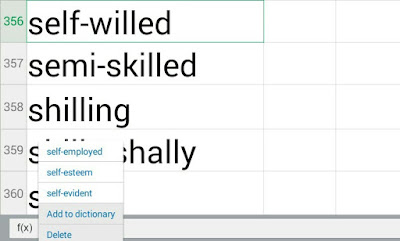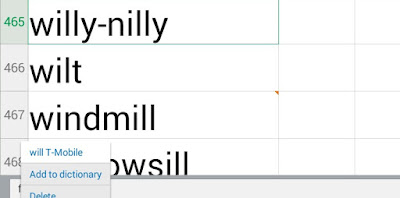The two are:
- An interview with the singer of the Eagles of Death. He was saying that he wanted to perform at the reopening of the Bataclan.
- An old Archive on Four programme, repeated last Saturday on Radio Four Extra
The first of these made me wonder how they [the band] would start. It would be missing a trick not to resume where they had left off when the infamous killing-spree started – perhaps even in mid-song. This reminded me of a story I heard in a half-remembered lecture, about Juan del Encina.
<autobiographical_note date_range="1971-1972">
In May 1972 I was ... not quite a world authority on sixteenth-century Spanish literature, but Professor E. M. Wilson, my lecturer for that year, was.
Juan del Encina
Juan del Encina, author of some of the seminal works in Spanish Golden Age literature, was arrested by the Holy Inquisition in the middle of a lecture. He was away for some considerable time (years, I think, but I was never much of a note-taker; I'm sure the details are somewhere on the Internet, if you‘re that way inclined).
When he returned, his opening words were Dicebamus hesterno die [="{As} we were saying the other day"].Now for the second of those blogogenic seeds. To quote Wikipedia:
<digression></autobiographical_note>
It was partly because of Professor Wilson's specialism (he had just contributed the chapter on Calderón to the standard work on Golden Age Literature first published in 1971) that the Hispanic Society chose the play mentioned here.
</digression>
...Vox populi, vox Dei /vɒks ˈpɒpjuːlɪ ˌvɒks ˈdɛɪ/, "The voice of the people [is] the voice of God", is an old proverb often erroneously attributed to William of Malmesbury in the twelfth century.(I can't say I'm entirely happy about that /ˈpɒpjuːlɪ/, but that's neither here nor there,) The
<digression>
It's not unlike other sayings, such as The customer is always right ([which whenever I've worked in retail...
<meta_digression possibility="0">... is emphatically not believed by the staff], that make a clear and radical statement that is manifestly untrue.
No, too boring. Except for the broad beans. Maybe another time.
</meta_digression>
</digression>Part of this saying has been used to refer to the sort of interview discussed in that Archive on Four programme – vox pop. I just heard a vox pop on the radio news, featuring opinions on whether the UK should bomb Syria. The interviewer asked someone who was strongly in favour 'Will it do any good?' And, scarcely credibly, the response was "WELL IT CAN'T DO ANY HARM." ... vox Dei? Perhaps he doesn't fully understand the concept of bombing.
In France, the word for a vox pop makes no such claim. But it does, by chance, recall a trick I've noticed in other vox pops. At the end, after the interviewer's piece to camera, the camera often pans down to the pavement to show the feet walking away [in the equivalent of cowboys riding off into the sunset]. It signifies That's all folks. (I have a researcher working on this; her fairly recent lecture notes from a Media Studies degree may give this observation some authoritative backing. Maybe, though, this recurrent camera trick is just favoured by BBC South's news editor[s].)
And that pavement is suggested also in the French micro-trottoir [="microphone-pavement", not "little pavement", SILLY].
In the USA, there is another term.
... broadcast journalists almost always refer to them as the abbreviated vox pop....In U.S. broadcast journalism it is often referred to as a man on the street interview or M.O.T.S
More'Professional videographer, editor, and media professor David Burns', in this YouTube clip uses the PC version 'person on the street' – maybe he's worried about tenure.
I wonder whether this 'on the street' influenced the French coining, in an attempt to avoid the borrowing of an Anglo-Saxon term (a pre-echo of La <<loi Toubon>>?).
b
PS
One other coincidence doesn't really count, as – although my choir is singing the song (an anonymous Siglo de Oro song) at the Christmas concert – I shall be unable to join them. This is because of the traditional annual clash between my choir's Christmas concert and my daughter's windband's Christmas concert.
Update 2015.11.30.21:05 – Misplaced para: sorry.
Update 2015.12.03.08:50 – A few corrections/clarifications, and added this crossword clue:
Spooner gave an uppercut to playwright for this factor in Winter's Tale. (4,5)
Update 2016.04.19..18:35 – Crossword answer (at last) and deleted obsolete footer.














